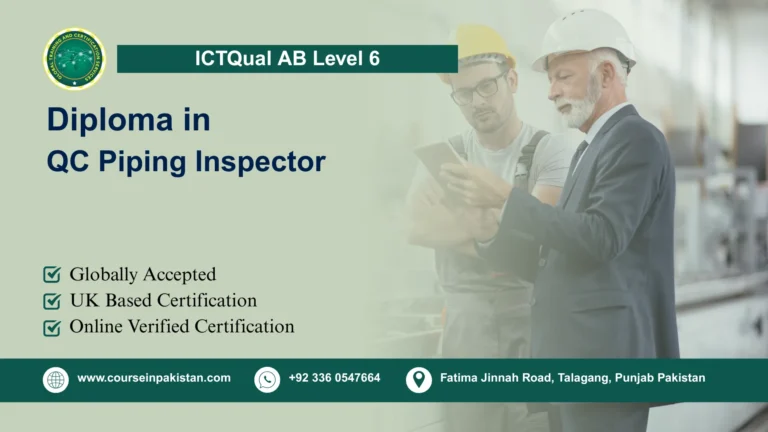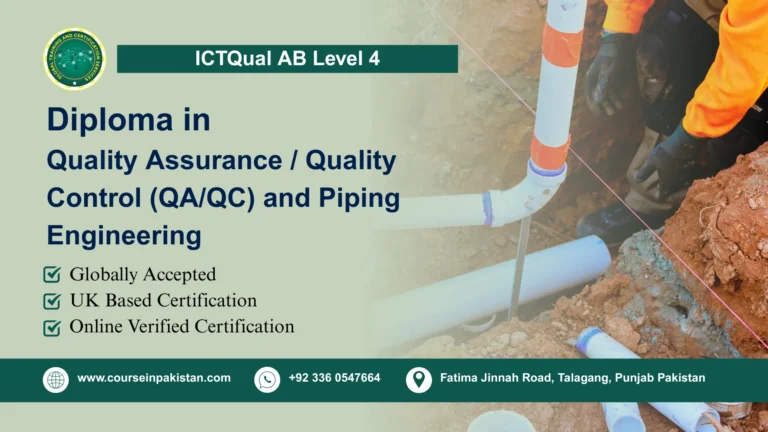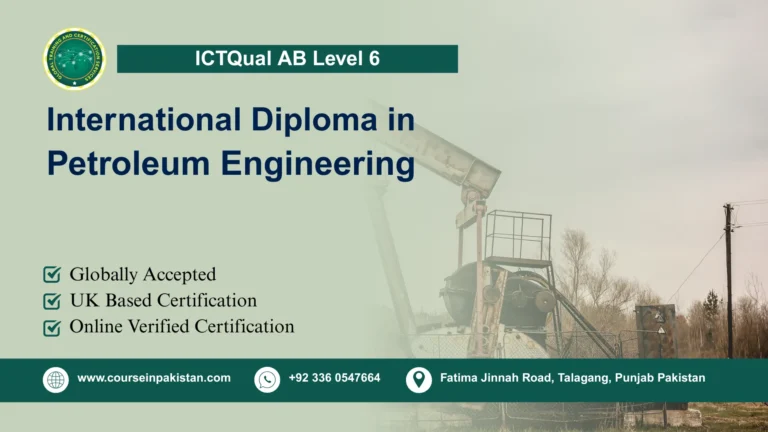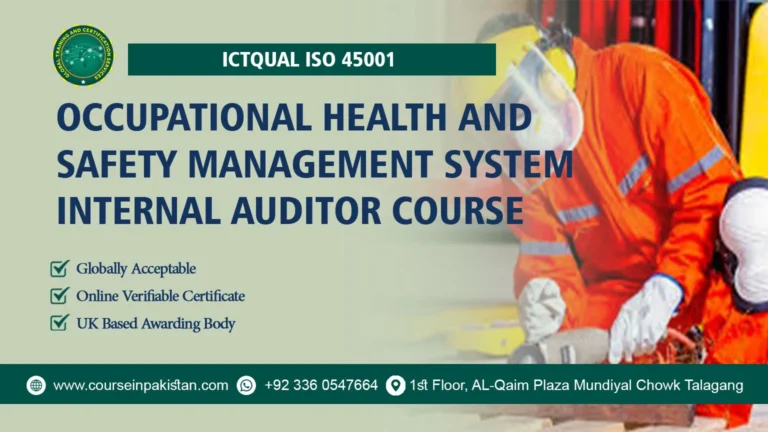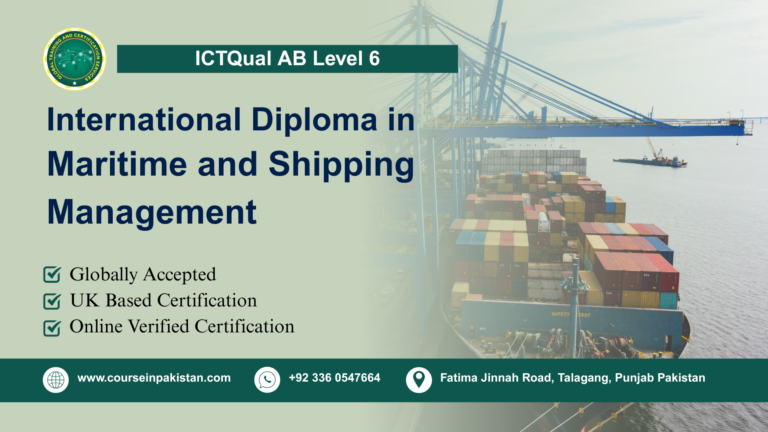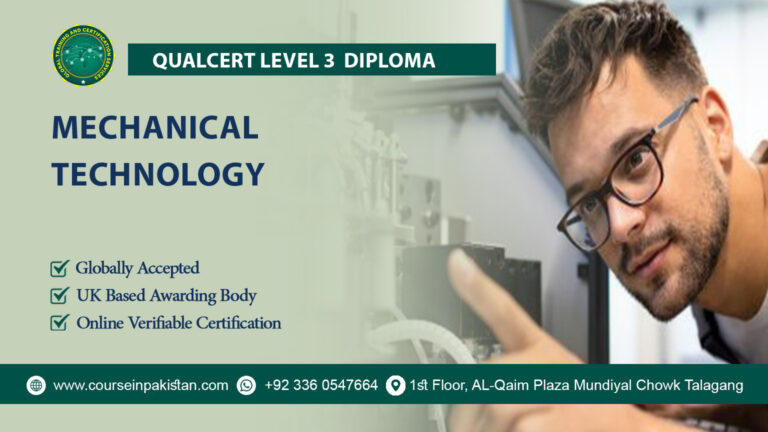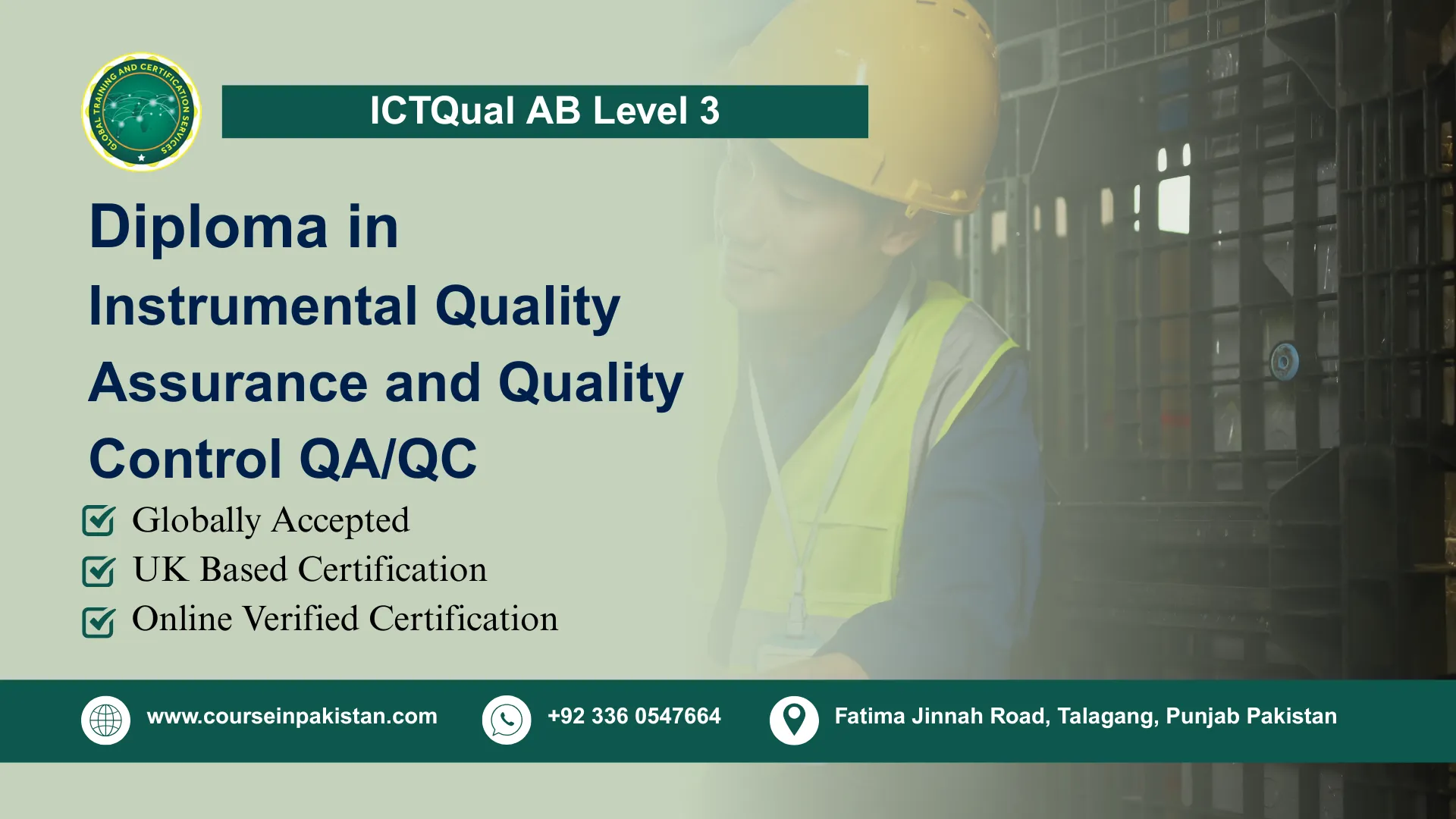
The ICTQual AB Level 3 Diploma in Instrumental Quality Assurance and Quality Control (QA/QC) is a specialized vocational program designed to equip learners with the essential skills and knowledge required to ensure product and process quality in industrial environments. This course focuses on the principles and practices of QA/QC, emphasizing the role of instrumentation in maintaining standards, consistency, and compliance across various sectors.
Learners will explore key concepts such as measurement accuracy, calibration techniques, inspection protocols, and documentation standards. The program blends theoretical instruction with hands-on training, allowing students to work with real-world instruments and quality control tools. Through practical exercises and case studies, learners will gain experience in identifying defects, analyzing data, and implementing corrective actions.
ICTQual AB Level 3 Diploma in Instrumental Quality Assurance and Quality Control QA/QC is ideal for individuals seeking to enter or advance in industries such as manufacturing, pharmaceuticals, oil and gas, food processing, and engineering services. It prepares learners to contribute effectively to quality assurance teams, uphold regulatory standards, and support continuous improvement initiatives within industrial operations.
Course Overview
The ICTQual AB Level 3 Diploma in Instrumental Quality Assurance and Quality Control (QA/QC) offers a robust and industry-relevant foundation in the principles and practices of quality control within instrumentation. Designed to meet the growing demand for skilled QA/QC professionals, this course introduces learners to the essential methodologies used to ensure product integrity, process reliability, and regulatory compliance across industrial sectors.Learners will explore a wide range of topics including quality management systems, calibration and testing procedures, statistical process control (SPC), and inspection planning.
Throughout the program, students will undergo immersive practical training using industry-standard equipment, calibration tools, and QA/QC software platforms commonly used in professional environments. This hands-on experience allows learners to simulate real-world scenarios, perform quality inspections, and apply measurement techniques with precision. They will gain familiarity with instruments used for testing process variables, as well as tools for defect detection, data logging, and compliance verification.In addition to technical training, students will develop the ability to interpret complex technical documentation, including datasheets, inspection reports, calibration certificates, and international standards.
Key Highlights of the Course:
- In-depth training in QA/QC principles and instrumentation techniques
- Hands-on experience with calibration tools, inspection equipment, and measurement systems
- Coverage of international standards including ISO, ASTM, and API
- Practical exercises in defect analysis, documentation, and corrective action planning
- Exposure to statistical process control and quality data interpretation
- Suitable for careers in manufacturing, oil and gas, pharmaceuticals, and engineering services
- Globally recognized qualification enhancing employability and career progression
Course Benefits
The ICTQual AB Level 3 Diploma in Instrumental QA/QC offers a wide range of benefits for learners aiming to build a career in quality assurance and industrial instrumentation. Below are the key advantages:
Technical Competence
- Develop expertise in using instruments for quality measurement and control
- Learn calibration, inspection, and testing techniques aligned with industry standards
- Gain proficiency in interpreting technical data and quality documentation
Career Opportunities
- Qualify for roles such as QA/QC Technician, Quality Inspector, or Calibration Specialist
- Access employment in high-demand sectors including manufacturing, energy, and pharmaceuticals
- Enhance your professional profile with a recognized vocational qualification
Industry Readiness
- Work confidently in regulated environments with strict quality protocols
- Apply quality control strategies to reduce defects and improve process reliability
- Understand compliance with global standards and regulatory frameworks
Professional Growth
- Build a foundation for advanced certifications in quality management and instrumentation
- Prepare for supervisory roles or specialized QA/QC functions
- Contribute to continuous improvement and operational excellence initiatives
Whether you’re starting your journey in quality assurance or seeking to advance your technical skills, this diploma provides the practical knowledge, industry relevance, and professional recognition needed to succeed in QA/QC roles across diverse industrial sectors.
Course Study Units
This qualification, the Level 3 Diploma in Instrumental Quality Assurance and Quality Control QA/QC, consists of 6 mandatory units.
- Principles of Instrumental Quality Assurance and Inspection
- Material Receiving, Handling, and Preservation
- International Codes and Standards for Instrumentation
- Instrument Tubing and Installation Practices
- Instrument Elements and Process Variables
- Loop Checking, Testing, and Commissioning
Learning Outcomes
The ICTQual AB Level 3 Diploma in Instrumental Quality Assurance and Quality Control (QA/QC) is designed to equip learners with the foundational knowledge and practical skills required to ensure quality and compliance in industrial instrumentation. Each unit focuses on a critical aspect of QA/QC, preparing learners to perform inspections, interpret standards, and maintain instrumentation systems with precision and reliability.
Principles of Instrumental Quality Assurance and Inspection
- Understand the core concepts of quality assurance and quality control in instrumentation.
- Identify the roles and responsibilities of QA/QC personnel in industrial environments.
- Apply inspection techniques to verify instrument accuracy and compliance.
- Interpret quality documentation such as inspection reports, datasheets, and certificates.
- Recognize common defects and non-conformities in instrumentation systems.
- Implement corrective and preventive actions based on inspection findings.
Material Receiving, Handling, and Preservation
- Understand procedures for receiving and verifying instrumentation materials and components.
- Apply proper handling techniques to prevent damage and contamination.
- Implement preservation methods to maintain material integrity before installation.
- Maintain accurate records of material receipt, inspection, and storage conditions.
- Identify and report discrepancies in material specifications or documentation.
- Comply with safety and quality standards during material handling operations.
International Codes and Standards for Instrumentation
- Familiarize with key international standards such as ISO, ASTM, API, and IEC.
- Interpret technical specifications and compliance requirements for instrumentation.
- Apply relevant codes during inspection, testing, and documentation processes.
- Understand the importance of standardization in global industrial practices.
- Evaluate instrumentation systems for conformity with regulatory and client standards.
- Maintain traceability and documentation aligned with international QA/QC protocols.
Instrument Tubing and Installation Practices
- Understand the types, materials, and specifications of instrument tubing.
- Apply correct installation techniques for tubing, fittings, and supports.
- Inspect tubing systems for leaks, alignment, and mechanical integrity.
- Ensure compliance with layout drawings, installation standards, and safety guidelines.
- Identify common installation errors and implement corrective measures.
- Document installation activities and inspection results accurately.
Instrument Elements and Process Variables
- Identify key instrument elements such as sensors, transmitters, and controllers.
- Understand the measurement principles of process variables: pressure, temperature, flow, and level.
- Verify instrument calibration and functionality against process requirements.
- Inspect instrument connections, wiring, and signal transmission paths.
- Analyze data from instruments to assess system performance and accuracy.
- Apply QA/QC procedures to ensure reliable measurement and control.
Loop Checking, Testing, and Commissioning
- Understand the purpose and procedures of loop checking in instrumentation systems.
- Perform functional testing of control loops, signal paths, and instrument responses.
- Identify and troubleshoot faults during loop testing and commissioning.
- Document test results, calibration data, and commissioning reports.
- Coordinate with engineering and operations teams during system startup.
- Ensure all instrumentation systems meet operational and safety standards before handover.
By mastering the learning outcomes across these six units, learners will be fully prepared to perform QA/QC functions in industrial instrumentation with confidence and precision. This qualification lays the foundation for a successful career in quality assurance, inspection, and compliance across a wide range of industries, while also supporting future academic and professional growth.
Who is This Course For?
This diploma is designed for individuals who are passionate about maintaining quality and precision in industrial processes. The ideal learner should possess the following attributes:
- Interest in Quality and Compliance Motivated to understand and uphold standards in industrial instrumentation.
- Basic Technical Aptitude Comfortable working with instruments, measurements, and technical documentation.
- Detail-Oriented Mindset Pays close attention to accuracy, inspection procedures, and data integrity.
- Commitment to Safety and Standards Values regulatory compliance, safety protocols, and continuous improvement.
- Career-Focused Attitude Eager to pursue a stable and rewarding career in QA/QC roles across various industries.
- Willingness to Learn and Apply Open to hands-on training, fieldwork, and applying theoretical knowledge in practical settings.
This course is ideal for school leavers, entry-level technicians, or professionals seeking to specialize in quality assurance and instrumentation.
Future Progression
- Graduates of this diploma can pursue various career and professional development opportunities, including:
- Employment as QA/QC Technicians, Quality Inspectors, or Calibration Specialists.
- Advancement to QA/QC Supervisor or Quality Coordinator roles with experience.
- Opportunities in industries such as manufacturing, oil and gas, pharmaceuticals, and food processing.
- Eligibility for international certifications in quality management and inspection standards.
- Transition into technical auditing, compliance, or documentation control positions.
Academic Pathways:
- This qualification also supports further academic progression in quality and engineering disciplines:
- Enrollment in Level 4 or Level 5 Diplomas in Quality Management, Industrial Instrumentation, or Process Control.
- Entry into Higher National Certificate (HNC) or Higher National Diploma (HND) programs in Engineering or QA/QC.
- Progression to Bachelor’s Degree programs in Industrial Engineering, Quality Assurance, or Applied Sciences.
- Participation in specialized short courses in ISO standards, Six Sigma, or statistical process control.
The ICTQual AB Level 3 Diploma in Instrumental Quality Assurance and Quality Control (QA/QC) is a career-focused program that equips learners with the essential skills to ensure quality, safety, and compliance in industrial instrumentation. Through a blend of theory and hands-on training, students gain the confidence to perform inspections, calibrations, and documentation tasks with precision. Whether you’re entering the field or seeking to specialize, this diploma lays a strong foundation for professional success and academic advancement in the QA/QC domain.

